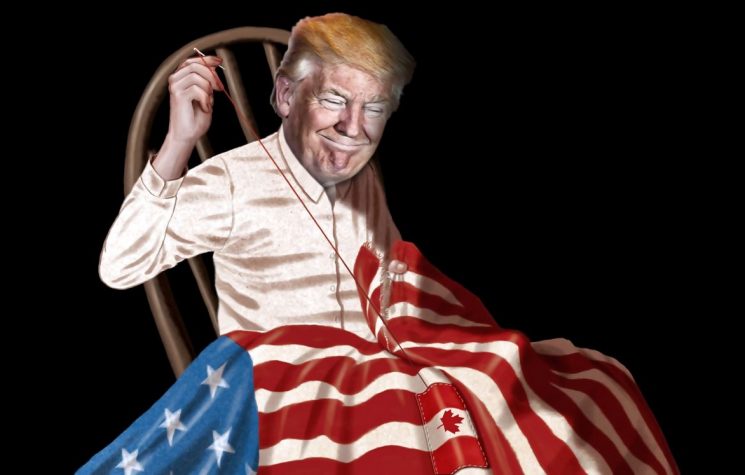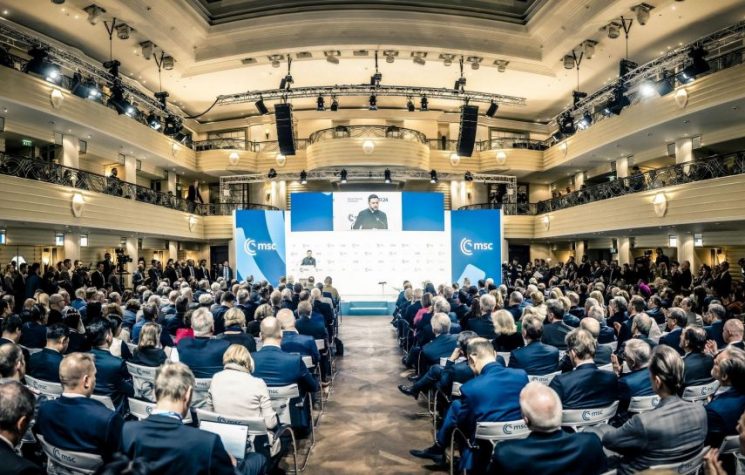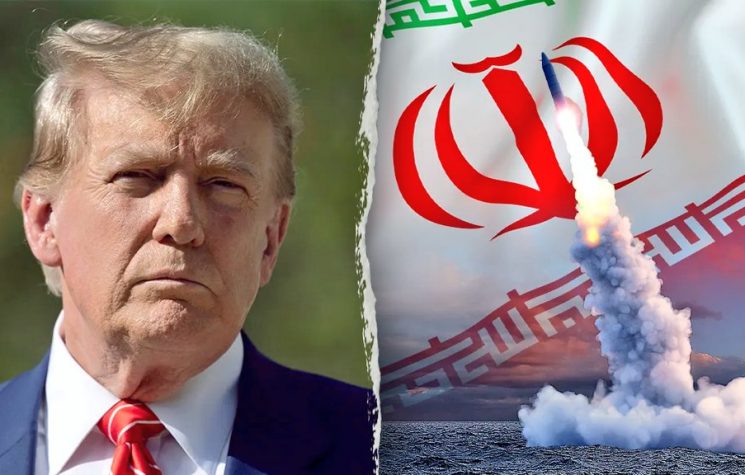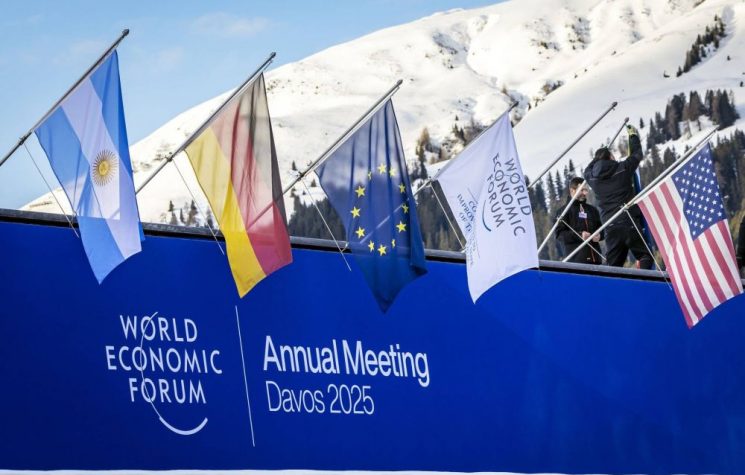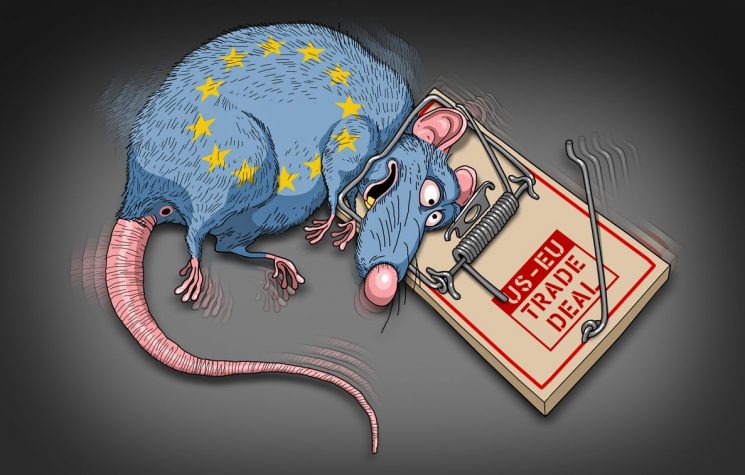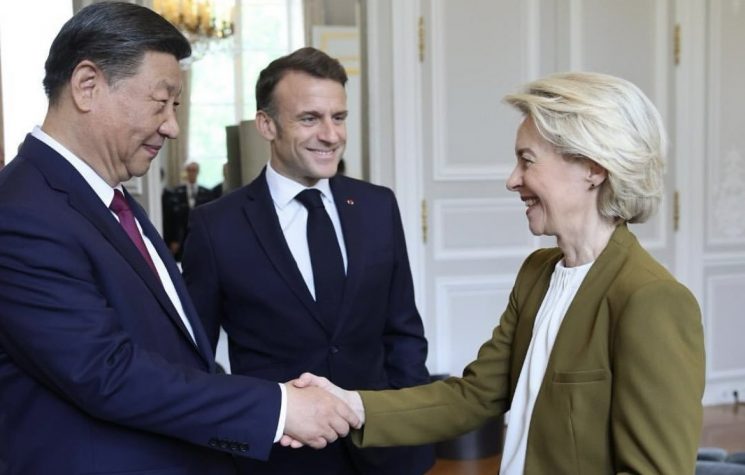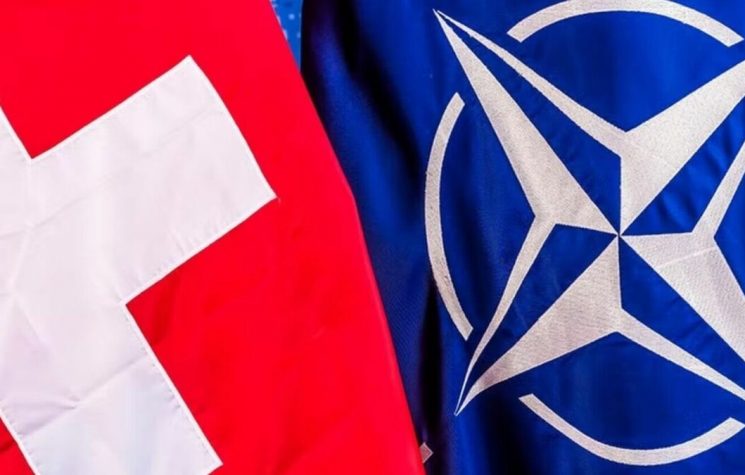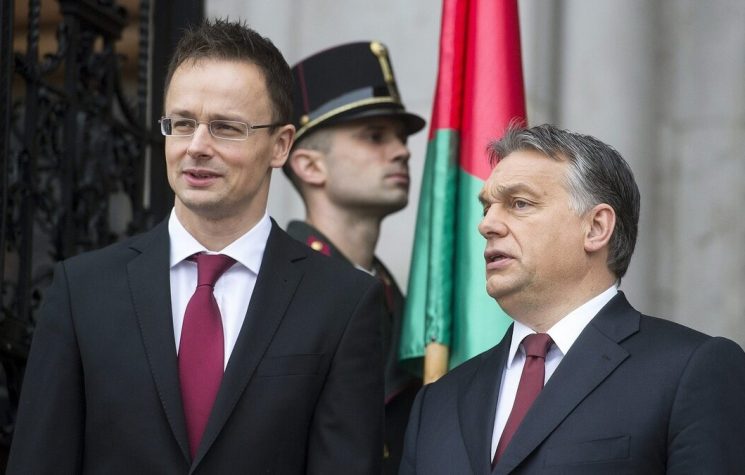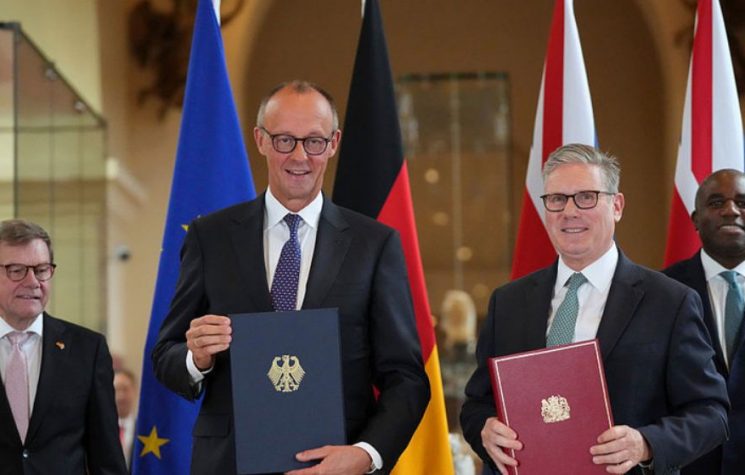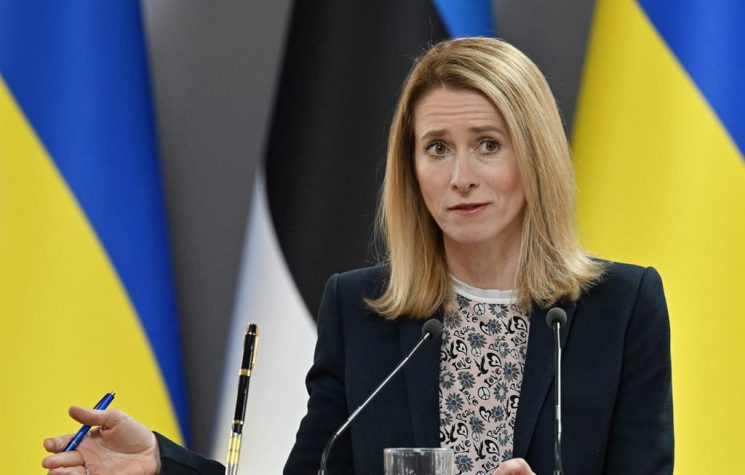When a society stops thinking about the future model it wants and lets itself drift with the tide, it will only be left with the scraps of others’ choices.
Join us on Telegram![]() , Twitter
, Twitter![]() , and VK
, and VK![]() .
.
Contact us: info@strategic-culture.su
If there is one thing we can take away from this U.S. tariff attack, it is the confirmation that being an “ally” or “friend” of this nation is, in fact, extremely dangerous. Beyond the utterly self-destructive commitments its allies are bound to—which can range from declaring war on powers like the Russian Federation, to accepting and normalizing genocide, or imposing suicidal sanctions and tariffs against economic blocs like China, not to mention “sharing” the best business deals and most advanced technologies—even in customs relations, the dynamic is lethally perilous.
It’s as if the U.S. is telling its vassals: “Vassalage is no longer enough”; “All the commercial, military, economic, and political advantages that vassalage grants us are no longer sufficient”; “Now you must pay for the right to be our vassals”; “A tribute for the right to pay tribute.”
The price of the “right to vassalage,” the “right” to witness one’s own economic decline, the transformation of advanced economies into mere economic substitutes, is paid through asymmetric tariffs. “To sell here, you must pay high tariffs, and beyond the tariffs that cripple your economy, you must also transfer the economic results of that trade and all its indirect economic potential to us”—in other words, “It’s all ours.” To this predatory pact, this act of economic bombardment and sabotage, the European Commission referred to it as a “balanced agreement.” And everyone watched, some more stoically, others less calmly, but they accepted it like docile cattle in a compliant herd. Is this how it is?
Despite everything I’ve said, I still have doubts about whether we can interpret Ursula von der Leyen’s submissive attitude toward Trump as an effective capitulation of the European economy to the White House’s will. Not that this isn’t her intention, or that it isn’t precisely for such behavior that the ex-Minister of Defense under Merkel and Stanford graduate holds the position of President of the European Commission. However, it seems to me that this “comprehensive agreement,” given the track record of this European Commission and its lack of the necessary competencies to negotiate everything that was announced, serves other purposes.
There should be no doubt about the role this European Commission plays in the capture of the European economy by the U.S., reducing it to little more than a mercantile extension dependent on the strategies of the metropolis. There are countless instances where von der Leyen’s actions as a broker for U.S. interests and a promoter of American agendas in Europe—particularly those involving direct competition with the Russian Federation, aiming at its economic weakening and eventual destruction—have been evident. This is nothing we haven’t discussed before.
In response to the dominance of Russian energy in the European Union and the critical role that easy, quick, and cheap access to vast amounts of gas played in economies like Germany’s, von der Leyen offered the apologetic silence of Nord Stream’s destruction, the sanctioning of payment mechanisms to hinder the purchase of Russian energy, and the effusive promotion of U.S. LNG and oil—as she recently did again, falsely referring to “better and cheaper” U.S. energy.
To wound the Russian Federation’s economy, von der Leyen didn’t hesitate to annihilate the European economy—a fact that, given her husband Heiko von der Leyen’s family history and the von der Leyen family’s ties to the Third Reich and Galicia, should unsettle us greatly, no matter how much they try to mask these ancestral connections with supposed confusion between different branches of the family.
But if Russophobic hatred could justify submission to U.S. gas and oil, the same cannot explain submission in other areas, such as armaments, Big Pharma, semiconductors, and the entire digital economy. How does a German woman born in Belgium feel such American patriotism? The explanation may lie in Ursula’s family origins, particularly the “Albrecht” family, a prominent aristocratic family involved in business, culture, and medicine. Ursula von der Leyen’s great-grandmother (Mary Ladson-Robertson), married to her great-grandfather Carl Albrecht, belonged to a slave-owning family that exploited cotton plantations in South Carolina. Anyone who thinks such things fade into obscurity at the aristocratic level is sorely mistaken. While Heiko’s side has historical ties to Ukraine, particularly Galicia, seized by Stalin, Ursula’s family connections trace back to the slave-owning Southerners of the Confederate states.
It is no coincidence, then, that Ursula climbed the European hierarchy as she did. Everything suggests that, in the realm of power relations, the years spent at Stanford with Heiko, pursuing his doctorate, were not in vain. No matter how much they tried to obscure Heiko’s ties to Pfizer—as prominent media outlets did—the truth is that Orgenesis (a U.S. company), led by the husband of the European Commission President, collaborated with Pfizer and BioNTech on the development of mRNA vaccines, like the one for COVID-19. As we know, things aren’t easy for the von der Leyen Commission at this level either, having been defeated in court in the Pfizergate case.
But we could go much further in highlighting the role of a European Commission President—who isn’t even elected—as a promoter of U.S. interests. This speaks volumes about why she does what she does, how she does it, and why, in a supposed “democracy,” such a position is held by someone from the most retrograde, conservative, and fossilized aristocracy of our times. If she were elected, she wouldn’t have a fraction of the destructive capacity she wields now. This tells us a lot about the treacherous nature of the European Union and its subversive role as an enemy of the people, peace, and development.
It was Ursula’s Commission that created the Chips Act, ensuring that even with access to the best EUV semiconductor printers, the EU continues to buy semiconductors from the U.S. rather than fostering the production of advanced European-branded chips. It was Ursula who promoted higher tariffs on Chinese photovoltaic panels and electric cars, aiming to boost the U.S. industry in these sectors, fatally undermining the very energy transition her Commission proclaims. There are many examples of U.S. interests being promoted on European soil under the hand of Ursula von der Leyen’s Commission, as we’ve discussed here.
So, in the case of the “comprehensive” tariff and trade agreement with Donald Trump, the issue isn’t von der Leyen’s intention to appease the U.S. and help salvage its hegemonic ambitions, even at the cost of the quality and way of life of European peoples. That intention is clear. What isn’t recognized, however, is any attempt to use this agreement to buy time and escape from under Uncle Sam’s thumb, as Japan is trying to do. Perhaps some member states see this agreement as an opportunity to diversify markets and reduce their exposure to Trump—cases like Spain, Hungary, Slovakia, or even France. None of these doubts, for opposite reasons, are on the table.
What is on the table is the reason why von der Leyen negotiated an agreement for which she lacks the authority, given that her competencies are limited to the tariff or customs dimension. We might ask whether von der Leyen is unaware of this, or whether the member states and their governments are unaware. And if they are aware, why do they allow it to happen?
These are, indeed, the hardest questions to answer. Saying that such an “agreement” will cause endless damage to the European economy is as redundant as it is futile, given the concrete limitations in its application for many reasons. The big question is: Why did von der Leyen, knowing that various European countries would reject such negotiated decisions, insist on negotiating them anyway? Does anyone believe this is all a charade? That this is a massive farce? This could also be a perspective to consider, given the importance of appearances and narratives in Western politics today.
Let’s start at the beginning: Why is it in the interest of the European Commission and its supporters (like Frederick Merz) to enter this game with Donald Trump? Why is it in the interest of the EU’s oligarchic elites to enter a tainted, unbalanced negotiation, forfeiting all possible advantages? In the cases of Ursula and Merz, we can assume their umbilical, professional, corporate, and emotional ties to the U.S. and all things anti-Russian explain much of their intent to submit the EU to the heavy boot of the U.S., ensuring it doesn’t drift back toward Eastern Europe. But what about the rest of the European countries?
In my opinion, the answer was already given in this article when I spoke about the European Commission as a crisis factory and how it uses produced or assumed crises to crush the rights of the people, workers, and their families. For the European oligarchic elites, the “tariff crisis” is another moment to instill fear and use it to crush the interests of the EU’s working masses. Hours after the “agreement,” German Minister Katerine Reiche was already telling us to “look to the U.S.” and saying that “Germans need to work more.” In other words, while they talk about Artificial Intelligence, digitalization, and increasing productivity—at a time when the rich have never concentrated so much wealth in history—the oligarchic elites and their lackeys come to tell us that it’s not enough. More work hours, less leisure, attacks on pensions, and all without explaining why what worked before no longer works now, when we have technologies we never had before. Now, when we could live with almost no work, they tell us, “No, you must work much more.”
Meanwhile, Portuguese entrepreneurs have said that “15% is manageable and better than 30%”. By that logic, 30% would be better than 100%, and 100% better than 1000%. This is what can be called “potato logic,” but it reveals much about the ultimate nature of Trumpist blackmail and submission. The fundamental objective isn’t the tariffs but everything they drag along with them. When it comes to raising wages, reducing working hours, or balancing work with family and leisure time, all of that is impossible—”the economy can’t handle it.” But accommodating an extra 15% in export costs? That’s “manageable”!
Thus, Trump has provoked yet another perfect crisis. If neoliberalism and the institutions that promote it (Washington, Wall Street, the IMF, the EU, the World Bank) are experts at creating crises, they are also experts at exploiting them. Everyone remembers how the subprime crisis was used to impose austerity across the EU under the farce of a sovereign debt crisis, which was actually about saving Deutsche Bank and, indirectly, U.S. banks. The truth is that with every crisis, manufactured or exploited, we all end up poorer. This one will be no exception. Von der Leyen’s statement tells us everything we need to know: turbulence, instability, and the need to stabilize and provide predictability.
By threatening 30% customs tariffs, Trump triggered the ideal scenario for fear and its exploitation. Not only did he create the conditions for the final submission of European economic interests to those of the U.S., but he also justified their surrender by Europe’s submissive political and economic elites. The fear he provoked, the blackmail he initiated—demanding tribute for the right to be a vassal and economically captured by the U.S. and its imperialist oligarchy—not only earned him 15% in tariffs for his coffers but also allowed von der Leyen to pose as the savior when, earlier in 2025, the EU faced tariffs of just 1-2%.
Ultimately, all these months of discussion about tariffs aimed only to create the instability scenario that the European Commission President clung to to secure the real prize: what comes attached to the tariff agreement—purchases of arms and energy, foreign direct investment in the U.S. If Trump’s entry into the White House initially made such capital displacement unlikely, especially after all that had already occurred under Biden, the fear and submission to blackmail now justify unprecedented plunder.
But what will states like France, Italy, or Spain think of such an agreement, as their economies gradually pivot eastward, continue buying Russian energy, and urgently need the resources the EU now wants to transfer to the U.S.? Will they forgo all Multiannual Structural Funds?
On this matter, I assume the attitude is ambiguous, cautious, and cynical. To avoid conflicts in the so-called “European cohesion”—increasingly frayed—these nations will view this agreement for what it is: a marketing tool for the European Commission to promote the U.S. economy, negotiated without the authority to do so, in an authoritarian, autocratic, and reckless manner, aiming to simultaneously create a ceiling and a catalyst for made in USA energy and arms purchases and an “invitation” to invest in that country. It also seeks to produce a psychological framework of instability to intimidate European workers. Everyone gains something, except European workers and Americans.
Consequently, the attitude has been: “Let her negotiate, because we won’t apply anything she thinks she negotiated”; “On the other hand, the fear generated is useful for governance, as it can be used to crush workers’ and their families’ rights”; “So, let’s pretend everything is fine.” This is the same attitude seen with Ukraine, where the effusiveness of verbal support often contrasts with concrete actions, except for Viktor Orbán, who, as an exception to the hypocritical mess, insists on saying what he feels and sees happening.
The fact is, the conditions for implementing the agreement are an illusion. It’s the member states who decide whether or not to buy arms; it’s the member states who decide whether or not to buy U.S. energy; it’s the member states who decide whether or not to invest in the U.S. In other words, Ursula von der Leyen has no power in this regard, which is why she concocted this clumsy and abusive scheme to deceive half the world into believing she could negotiate what was manifestly beyond her reach. The reasons behind this lie in her attempt to use the agreed amounts as targets to be achieved, which can then be used in corporate media propaganda and institutional meetings to convince member state governments that it’s necessary to comply with what she agreed to—and to give them the tools to convince their respective populations of the same. It’s an attempt to create a false sense of obligation where none exists.
It may have been the awareness that this sense of obligation doesn’t exist that pacified states like Spain, more oriented toward the East, or even Germany, interested in the fear that crushes social rights but less interested in forced purchases. For most states, the tariff becomes trivial, as they can use the tariffs and the need to buy what they don’t want—at least not at the announced levels—to crush social rights, saving millions for states and employers. The tariffs will be largely offset.
We are not only facing yet another of the crises von der Leyen is so notoriously fertile in creating to transfer resources to the U.S., but also another farce designed to deceive the usual suspects. One thing is certain: in the end, we’ll all be left with more expensive energy (even if it’s just to fatten the profits of European energy companies), more weapons to face the already charted path of war, fewer labor rights, lower pensions, and even more deteriorated public services and infrastructure. Accompanying this decline, we’ll also face greater repression, as it will be necessary to quell, even by force, the social pressures that will arise.
If this tariff agreement isn’t, for the EU, everything I’ve described here, then the outcome is even worse. Because if it isn’t merely a tool—on one hand, for the pressure von der Leyen will exert on member states to achieve the desired economic results, and on the other, for most Western governments to exploit in crushing social and democratic rights—and if it isn’t just hypocrisy from those who already know they won’t comply but do nothing because, beyond the advantages they can extract from the situation, they don’t want to further damage the already fraudulent “European cohesion”… then only two answers remain.
Where does that leave us? Is the “agreement” a farce, or are we living in a farce, with the appearance of a suffrage-based system? Is the Trumpist strategy just a matter of optics, for electoral gains and corresponding economic advantages, or are we living in a banana republic?
I still remember the negotiations of the famous TTIP (Transatlantic Trade and Investment Partnership) between the U.S. and the EU under Obama, which Trump interrupted. This agreement began to be negotiated in July 2013 but had been secretly in preparation for much longer, representing the piece with which Obama hoped to recover—also at the EU’s expense—the U.S. The preparation and study of proposals on the European side involved hundreds of large corporations (the biggest beneficiaries) and all social partners. I remember well how the technicians and chiefs of staff from the various Directorates-General of the Commission involved in the negotiations appeared in bilateral meetings between employers and European trade unions, high-level conferences, and other events to present the TTIP and convince the various actors that it was highly advantageous. At stake were trade exchanges worth €210 billion (€120 for the EU, €90 for the U.S.). The text was scrutinized, sectoral studies were produced, and many criticisms emerged.
The fact is, taking seriously what is serious, the TTIP is a very recent example of how these things happen and the material forces they involve. The assurance that the TTIP, like CETA with Canada, was meant to be implemented didn’t come just from the written text but from the depth of the discussion, the commitment of the actors, and the persuasion of the economic forces involved in its application. The text would reflect that. If it was meant to be fulfilled, then it had to be taken seriously.
What happened between Trump and Ursula von der Leyen is very different and, seen in this light, utterly disconcerting. An agreement of this scope, without discussion, study, planning, or guidance on its application in practice or how the real economy will respond to each of its provisions. Not a single written document, a plan for scrutiny, a study, or an economic forecast about possible impacts?
Does anyone believe negotiations at this level proceed without an in-depth study of impacts and consequences? Without rigorous analysis, even with our executioners, about options, advantages, disadvantages, negotiating margins, and other variables? Is the new normal what we’ve witnessed in Istanbul? Rushed agreements, for the press, not to solve problems but to justify certain choices in the court of public opinion? Are these agreements just tools for constructing narratives and appearances?
If this is the answer, then we must admit that we are indeed living in a massive farce. But admitting the opposite—that member states, where electoral suffrage ratifies governmental acts, watch impassively as this kind of negotiation is led by someone everyone knows (and whose actions prove) is more loyal to the U.S. than to Europeans—tells us we live in a plutocracy. A system where someone, on behalf of those the European Commission’s bureaucrats and technocrats serve, frightens, manipulates, decides, and applies policies without scrutiny, acting only to justify the continued plunder of the economic resources still held by the working class—whether their homes or the social rights enshrined in treaties, laws, and constitutions. The answer lies somewhere in between.
However, in the end, it will be the people, the force of their sovereignty as the source of democratic legitimacy, and their struggle that will determine to what extent this agreement is applied, to what extent companies can absorb the 15% tariffs by crushing wages or will be forced to seek new markets, whether the EU will continue on this path of demonizing indispensable partners like the Russian Federation and China (now Trump is also demonizing India and Canada), and whether the European Union will survive this wave of annihilation of the European way of life, exchanging it for some Argentine-style project.
The alternative to this struggle, this emancipation and liberation from the globalist claws that Trump also mobilizes, will be the transformation of the European Union into a kind of Latin America—but worse: with an aging population and no natural resources.
When a society stops thinking about the future model it wants and lets itself drift with the tide, it will only be left with the scraps of others’ choices. This is the life of countries subjected to the centrifugal force of resource extraction that is the European Union today.










